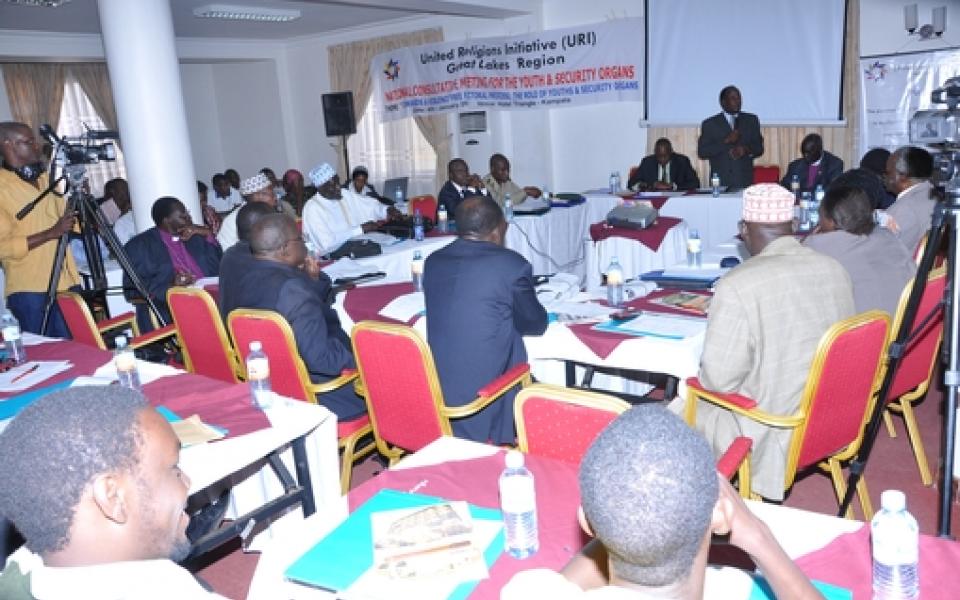
As Ugandans prepare to go the polls on the 18th of February to elect a new government, URI-Great Lakes is stepping up a national campaign for non-violent elections. In the past years, election-related violence in Uganda has been chaotic with strong interface between youths and security organs which has increased the lack of trust between the security organs and the populace, more especially the youth, and disaffection with the political process. Security issues have been complicated this year by the formation of youth brigades around the country—ad hoc youth “security” forces that have no clear purpose and no uniform code of conduct.
URI-Great Lakes, with support from the Open Society Initiative of East Africa, launched a series of consultations between youth and security agencies to identify root causes of conflict and address the gaps, needs, and myths of the electoral process. The local district centered meetings culminated into a national consultation in Kampala on January 4. These two groups, which include the police and the army, are critical to maintaining the peace. Youth, for example, are often used by politicians to instigate election violence by destroying property, throwing stones, burning car tires etc., while the security organs retaliate mostly with deadly force, provoking even more violence. Also because so many youth are unemployed, they tend to capitalize on election related or any other form of violence as an opportunity to vent their frustrations.
The concerns of both groups, as well as the electoral commission, were shared in the national summit in a free and fair atmosphere hosted by people of different faiths. While youth shared that they felt sidelined, targeted and treated unfairly by the security organs, the security agents felt the youth were pawns of politicians, forceful, chaotic and provocative. Allowing the groups to be heard by one another was a very big step in clearing up misconceptions and overcoming prejudices.
At the end of the meeting, stepping stones were developed to ensure peace before, during and after the electoral process, including the disbanding of the youth brigades; balanced media outreach; community policing by teams of youth, religious leaders and police; and civic education about the role of security agencies.
In the final weeks before the election, URI-Great Lakes has also dispatched peace ambassadors comprising of Youths, Police and the Religious leaders to carry the campaign to violence-prone areas around the country, and is using the radio and other media to share messages of peace from key religious leaders such as Cardinal Emmanuel Wamala, Bishop Ochola, Bishop Epusi from Kenya, Sheikh Mbogo from the Muslim Supreme Council, and Mussie Hailu, URI Regional Director for Africa.
